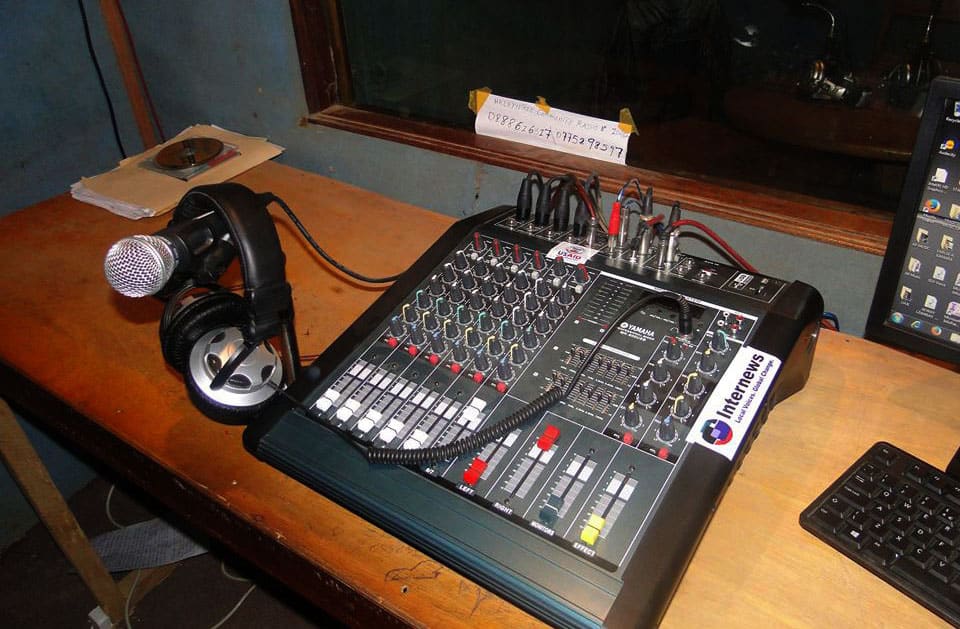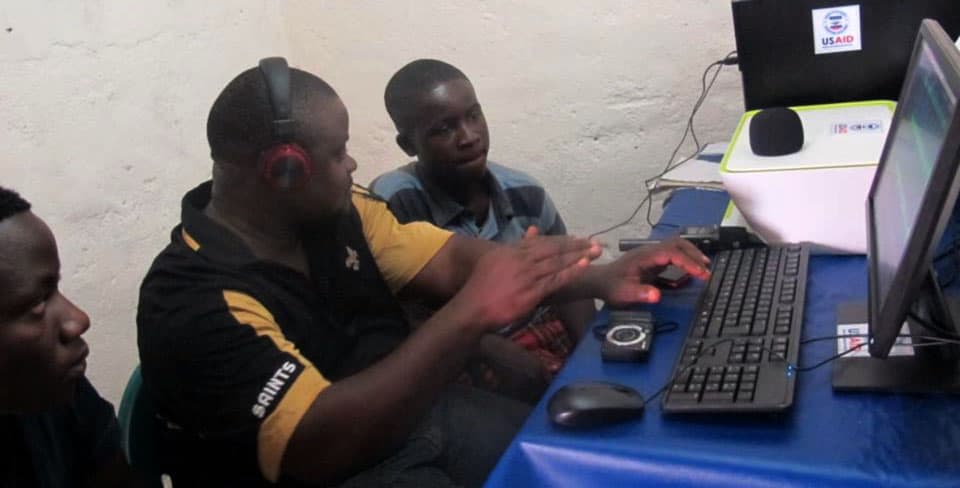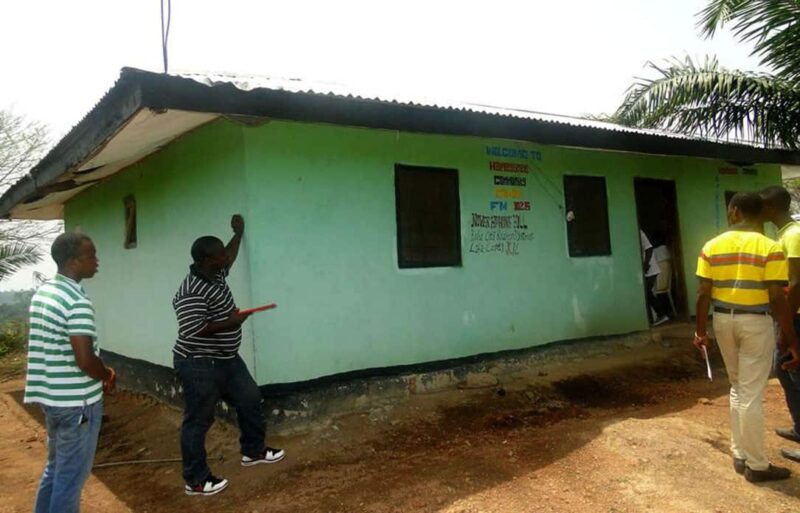“When you get outside the capital, Monrovia, community radio is king.”
That’s how Jefferson Massah, Internews Senior Community Radio Advisor and an accomplished agricultural reporter in Liberia, describes the importance of community radio his country, which counts more than 80 community radio stations in an area roughly the size of the US state of Tennessee.
In Lofa county in the north of the country, the community station Radio Life is in fact the only broadcast source of information for the remote mining region it serves. Weekly, on market days, community members meet a station reporter to share announcements and information that makes its way to the station. This information loop is slow, but vital, to the rural residents here.

But running a radio station, even a not-for-profit community centered station, costs money. And while many of the community stations in Liberia get support from the aid community – either to directly support their operations, or as part of communication efforts on health, agriculture, and conservation, where an NGO might purchase air time to air educational programming – Internews’ work with community radio is centered on sustainability.
How can these valued stations ensure their longevity, in areas where advertising markets are negligible, and aid funding is not sustainable?
Jefferson says the first focus is on community.
“For a community station to work, the community needs to see their own ownership in a station – ‘We depend on this, how can we keep it running?’”
That’s why Radio Life started something familiar to US listeners of public radio, but new in Lofa: an annual fundraising drive. Working with Internews’ local partner leading training and mentoring, the Liberian Media Center, more than 20 community stations in Liberia have developed business plans and undergone management training, to build specific tactics unique to their own localities and situations.
Radio Life’s plan relied on making their case to the community – realizing that they needed financial support, they held events and made an effort to ask everyday people to give what they could. Last year, in their first effort, they raised close to $700. While that alone won’t cover operating costs, it’s not an insignificant amount, and most importantly, it cements the community’s relationship as partners and co-owners of the station.
Jefferson says this is key, and that all the community stations working with Internews are advised on building advisory boards that represent the community stakeholders.
“Cross-cultural representation – a board with youth, women, men, and professional institutions – they can be responsive and drive the feeling of community ownership. Then the community will have a say, and trust what the station has to say.”

In addition to focusing on community involvement, other stations have developed creative business models to fund their operations. In Bassa, one station looked at the retail opportunities in their town and decided to open a stationary store, selling office supplies and other materials, in an independently-managed store whose profits fund the radio station.
Voice of Rural Montserrado made a decision to invest in moving station operations – not an easy thing to do on a limited budget – to a more populated and commercially viable area. The short-term expense of moving has paid off in long-term sustainability. Voice of Rural Montserrado can still reach the same community with its broadcasts, but has much better revenue prospects in its new location.
Jefferson stresses that as Liberia changes and progresses, with more opportunities but also more competition in radio and decreasing funding from support institutions, it’s incumbent on the stations to think deeply, build strong community foundations, and make a plan for their future. “Develop an idea that will keep you engaged in a community. The stations that are successful came about because of business planning – you need to look at your opportunities and explore.”
(Banner photo: Radio Harleynee is part of the network of community radio stations in Liberia that Internews works with. Credit: Internews)

Internews’ Liberia Media Development Program is supported by USAID.
